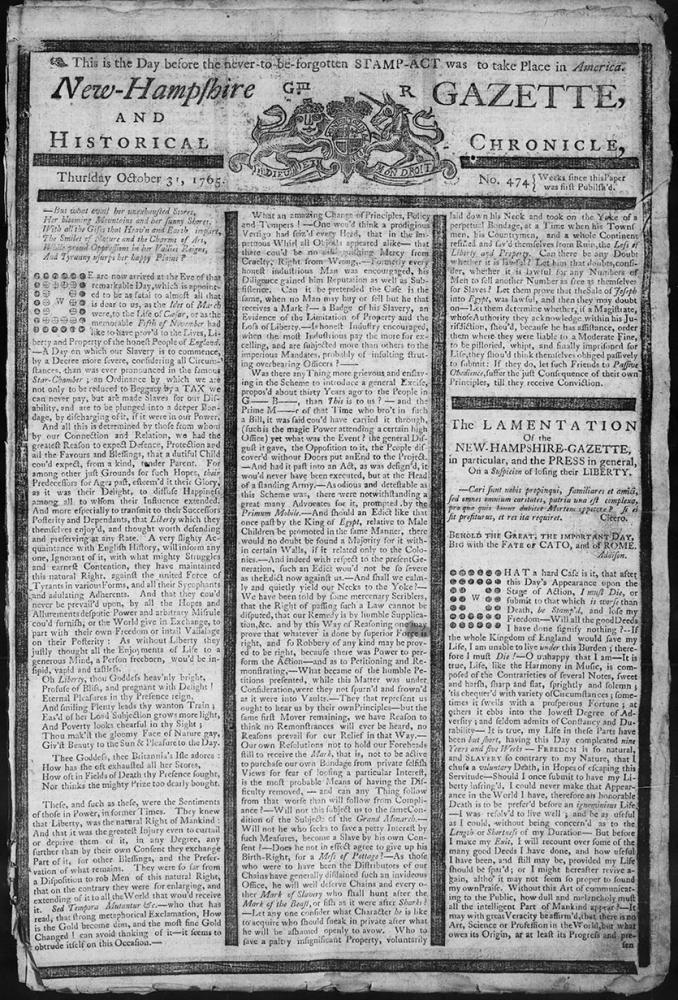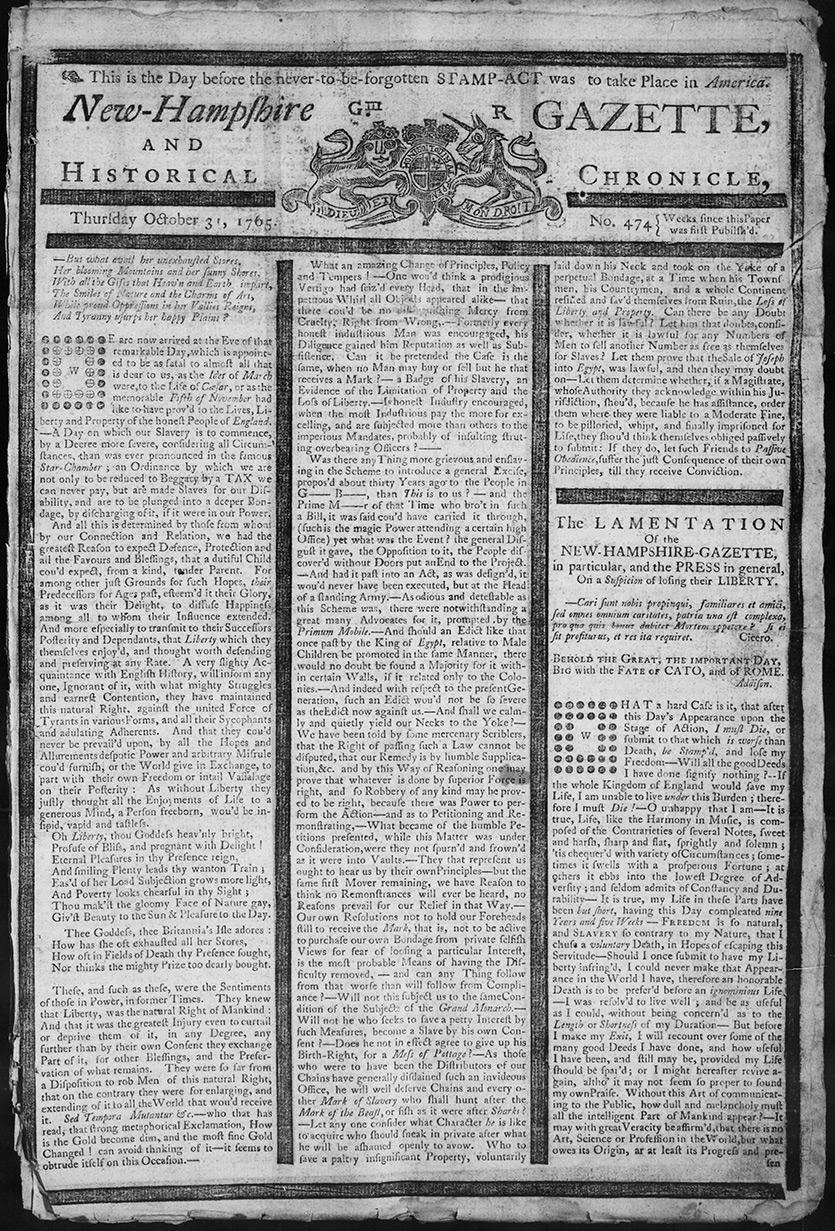We’ve Got Issues, Eighteenth-Century Issues: Chronicling America Adds Early Newspapers
In 2022, New Hampshire became the 50th state to join the National Digital Newspaper Program, and it rapidly began digitizing newspaper content for Chronicling America, the searchable online database of more than 20 million pages of historical American newspapers.
The fruits of Dartmouth College’s labor are now ripe for the picking as seven eighteenth-century titles are now fully available in Chronicling America. Titles and date ranges currently available are:
- New Hampshire Gazette, 1756–1763
- New-Hampshire Gazette and Historical Chronicle, 1763–1776
- Freeman's Journal, or, New-Hampshire Gazette, 1776-1778
- New-Hampshire Gazette, or, State Journal and General Advertiser, 1778–1781
- New-Hampshire Gazette and General Advertiser, 1781–1784
- Fowle's New-Hampshire Gazette and General Advertiser, 1784–1785
- New Hampshire Gazette, 1793–1837
If you are a super user of Chronicling America, or a super fan of the eighteenth century, you might notice that the first title listed sends Chronicling America’s chronological scope back 14 years. Just last year, Boston Public Library contributed Isaiah Thomas’s Massachusetts Spy, which set Chronicling America’s start date back to 1770, and before that Rhode Island’s Newport Gazette, which began publication in 1777, was the earliest content in Chronicling America. With these latest additions from New Hampshire, we expand the temporal reach, so we can begin to fill out the pre-Revolutionary picture of life in the colonies.
And this is not all that marks the New Hampshire Gazette as a newspaper title that deserves note. The newspaper, for most of its run, was printed by an enslaved Black man, Primus, whom Daniel Fowle brought, along with two enslaved women, when he moved his family from Boston to Portsmouth in August 1756 to escape British censors. Primus worked Fowle’s press for some 50 years until his death in 1791 at the age of about 90.
Like most newspapers in the period, the New Hampshire Gazette contains deep contradictions. Amid the rhetorical flourishes extolling the virtues of liberty, the New-Hampshire Gazette contained advertisements for the sale of enslaved people and for the capture of those who tried to emancipate themselves. Unfree labor not only made the New Hampshire Gazette, but it was also a primary subject of the press in the form of advertisements for people who had sought self-liberation. These brief descriptions of enslaved and indentured people placed by enslavers in the hopes of capturing and/or recapturing these self-emancipating people can be explored further in the NEH-funded projects Freedom on the Move and Enslaved.org.
The prose adjacent to these advertisements for rewards to apprehend self-liberating people might surprise a reader. Like so much of the growing anti-British tirades, many of articles throughout the newspaper written by Fowle, Primus’s enslaver, relied on themes of freedom and slavery, tyranny, and bondage as metaphor, describing their presses as “free” and their readers “casting off shackles.” Such descriptions ran in the New Hampshire Gazette next to the advertisements to sell enslaved people or to capture those who sought emancipation. The freedom of the press that Fowle fought for when he moved from Boston to Portsmouth became, in the heightened political rhetoric of the 1770s, not just the freedom to express oneself, but also freedom from oppression. But that freedom was limited to the white colonists and not extended to the victims of racialized slavery; the contradictions within the newspaper itself remind us of the contradictions inherent in early American depictions of freedom. It is for this reason, and so many more, that this early content is essential as we explore America’s story in preparation for its 250th anniversary.
The Chronicling America historic newspapers online collection is a product of the National Digital Newspapers Program and jointly sponsored by the Library of Congress and the National Endowment for the Humanities.

